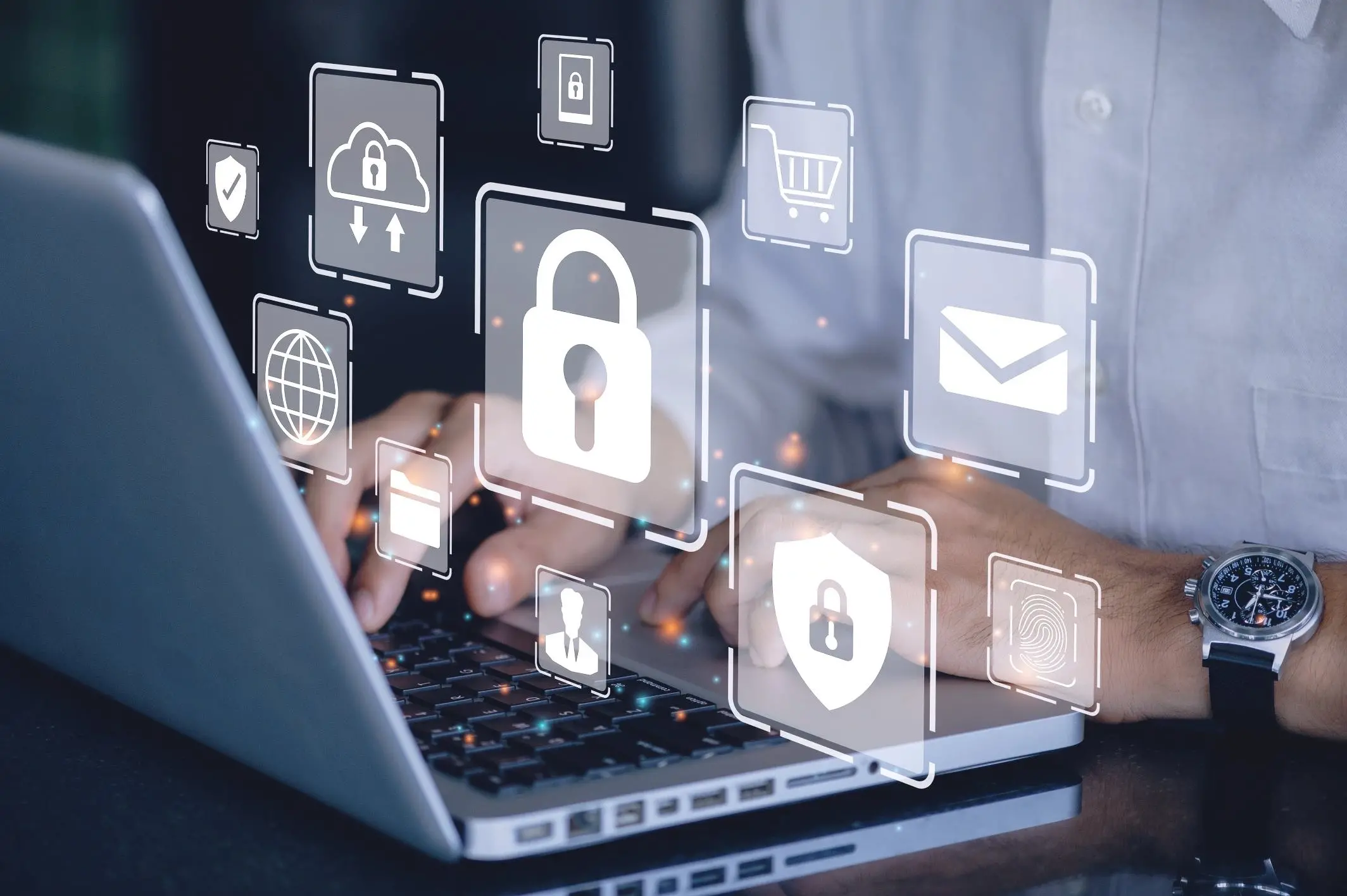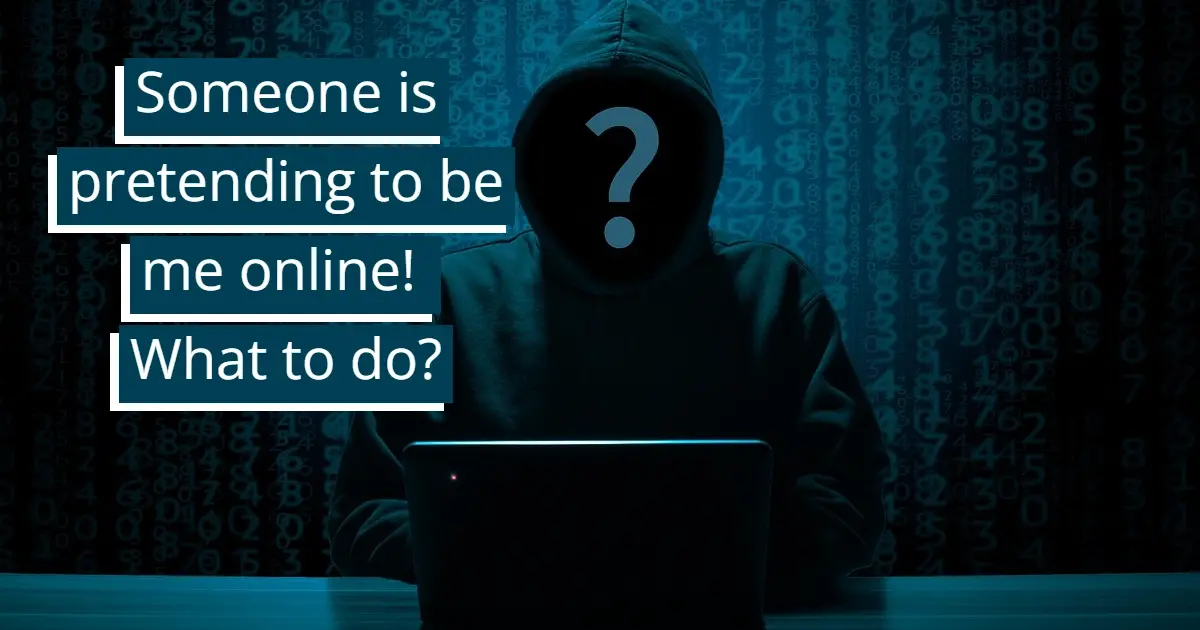Have you ever thought to yourself “someone is pretending to be me online”? Whether you have or not, in the digital age, our lives are increasingly intertwined with the online world. Social media, email, and various online platforms have become nearly a necessity for our personal and professional identities. However, because all this information is accessible online and often in the same website that a lot of other people use, this connectivity also exposes us to the risk of online impersonation. This comprehensive guide explores what online impersonation is, why it's a threat, and outlines steps to take if someone is pretending to be you online.
Understanding Online Impersonation
Our online identities are often as important to us as our physical ones in a world that is increasingly interconnected through the Internet and social media. Digital identities are not simply communication tools, but play an important role in our lives both personally and professionally. However, the issue of online imitation has arisen as a result of this interconnectedness.
Online impersonation is the act of an individual pretending to be another person online. It can be as simple as creating a bogus Facebook profile or sending false emails in the names of other people. We'll be tackling the complexities of online impersonation, why it poses a danger and how to take action if you discover yourself or someone you know is being impersonated in this guide.
- What Is Online Impersonation?
- Motives Behind Online Impersonation
- The Legal Perspective
What Is Online Impersonation?
Online impersonation, commonly referred to as identity theft or digital impersonation, occurs when someone pretends that they're somebody else and creates a fake persona in order to deceive others online.
It can take various forms, including:
- Fake Social Media Profiles
- Email Spoofing
- Phishing Scams
Fake Social Media Profiles
With fake social media profiles, impersonators create profiles on platforms like Facebook, Twitter, or Instagram, using someone else's name, photos, and personal information.
Email Spoofing
With email spoofing impersonators send emails that appear to come from a legitimate source, potentially tricking recipients into giving out sensitive information.
Phishing Scams
Phishing scams are when impersonators create websites or emails that imitate trusted entities (example: banks or government agencies) to steal login credentials or financial information.
Motives Behind Online Impersonation
Online impersonation can have diverse motives, including:
- Cyberbullying
- Fraud
- Revenge
- Defamation
Cyberbullying
Cyberbullying is when some individuals impersonate others to harass, embarrass, or intimidate them.
Fraud
Fraud is a type of impersonation that can be used in financial scams or in gaining unauthorized access to accounts and resources.
Revenge
In some cases, some people may impersonate in order to have revenge on others for personal reasons.
Defamation
Defamation is when impersonators may create false stories or spread damaging information about their targets in order to harm their reputation.
The Legal Perspective
The laws on online impersonation vary from region to region, but there are laws in place to deal with this issue. Common legal consequences for online impersonation can include civil lawsuits and criminal charges. Laws often focus on:
- Identity Theft
- Defamation
- Cyberbullying
- Fraud and Deception
Identity Theft
Many jurisdictions have specific laws against identity theft, which includes online impersonation.
Defamation
Impersonation can lead to defamation claims if false statements are made with the intent to harm someone's reputation.
Cyberbullying
Some regions have anti-cyberbullying laws that encompass online impersonation for malicious purposes.
Fraud and Deception
Impersonation for fraudulent activities can result in criminal charges related to fraud or deception.
Recognizing Online Impersonation
- Signs of Online Impersonation
- Differences Between Parody and Impersonation
Signs of Online Impersonation
It’s important to recognize anything happening that could pertain to online impersonation. Here are some common signs that you may be a victim of online impersonation:
- Unauthorized Social Media Profiles
- Suspicious Emails
- False Statements
- Unexpected Friend Requests or Messages
- Changed Passwords or Account Access
Unauthorized Social Media Profiles
Discovering social media accounts in your name that you did not create could be a sign of online impersonation. Additionally, this also is done so the impersonator will try to send a friend request to anyone that is connected to you in order to try to gain access to your friends’ accounts.
Suspicious Emails
Receiving suspicious emails from your own email address or noticing unusual activity in your email account may be a sign of online impersonation.
False Statements
If you’ve been learning about false information or statements being attributed to you online, then someone on the internet may be impersonating you.
Unexpected Friend Requests or Messages
If you’ve been receiving friend requests or messages from people claiming to know you but with whom you have no connection, it’s possible that someone may be impersonating you online..
Changed Passwords or Account Access
If you’ve found that your online accounts have been compromised, and passwords or security settings have been changed, it’s more than likely someone impersonated you and gained access.
Differences Between Parody and Impersonation
The distinction between online impersonation, parody, and satire is important. Parody is the use of laughter, exaggeration and imitation to comment on or criticize an individual or entity. While impersonation is deceptive and often malicious, parody is intended for entertainment or commentary.
For example, a parody Twitter account can look like a celebrity's style, but it does not clearly state in its bio or on the tweets that it is mocking. Impersonation, on the other hand, is intended to deceive and harm.
The Impact of Online Impersonation

Online impersonation can result in some far-reaching consequences, affecting victims emotionally, socially, and even legally.
- Emotional and Psychological Toll
- Reputational Damage
- Potential Legal Consequences
Emotional and Psychological Toll
It can be emotionally disturbing if you are impersonated online. Victims often experience anxiety, embarrassment, anger, and a sense of violation. The emotional strain may be exacerbated by a feeling of helplessness.
Reputational Damage
Internet impersonation can harm a person's image, both personally and professionally. False statements or malicious actions attributed to the victim can harm relationships, career prospects, and personal well-being.
Potential Legal Consequences
Impersonators may face legal consequences if their actions violate the law. Victims may sue for damages, while law enforcement can investigate and prosecute cases of online impersonations related to criminal activity.
“Someone is pretending to be me online!” - What to Do if You're a Victim of Online Impersonation
If you discover that you're a victim of online impersonation, taking immediate action is super important. Here are steps to you should do if someone is pretending to be you online:
- Gather Evidence
- Report to the Platform
- Seek Legal Advice
- Protect Your Online Presence
Gather Evidence
Collect evidence of the impersonation, including screenshots of fake profiles, emails, or messages. Keep records of any interaction with the impersonator, and record damage or loss incurred as a result of being impersonated.
Report to the Platform
Contact platform administrators or customer support if this is the case when you are impersonated on Facebook, as well as with email services and other internet platforms. Most platforms have policies in place for reporting impersonation or harassment.
Seek Legal Advice
Contact your lawyer for more information on your legal options if the impersonation causes serious harm or infringes the law. They're capable of helping you decide whether to file a lawsuit or report it to the police.
Protect Your Online Presence
If you haven’t already, make sure to take the steps listed below to secure your online presence:
- Change Passwords
- Enable Two-Factor Authentication (2FA)
- Inform Contacts
- Monitor Your Online Presence
Change Passwords
Change the passwords for your email and online accounts to prevent further unauthorized access.
Enable Two-Factor Authentication (2FA)
Two-Factor Authentication (2FA) is a security method that adds extra secure steps in the way of someone being able to gain access to your online accounts. Make sure to activate 2FA on any website you have an account with, especially if they offer it as a feature.
Inform Contacts
It’s important to give your friends, family, and professional contacts a heads up about the impersonation to prevent them from falling victim to scams or misinformation.
Monitor Your Online Presence
Make sure to regularly search for mentions of your name or online accounts to identify and address any further impersonation attempts.
Preventative Measures

You might find it challenging to completely stop online impersonation, but you can take some preventative measures in order to reduce your vulnerability:
- Secure Your Accounts
- Monitor Your Online Presence
- Educate Yourself and Others
Secure Your Accounts
- Strong Passwords
- Two-Factor Authentication (2FA)
- Regularly Check Privacy Settings
Strong Passwords
Use strong, unique passwords for your online accounts, and update them regularly.
Two-Factor Authentication (2FA)
While 2FA has been mention, it’s extremely important to enable 2FA on your email and social media accounts for added security.
Regularly Check Privacy Settings
Review and adjust the privacy settings on your social media accounts to limit what others can see. Some platforms, like Facebook, have a Security Health Check setting that you can regularly take advantage of.
Monitor Your Online Presence
- Google Alerts
- Social Media Monitoring Tools
Google Alerts
Set up Google Alerts for your name or online handles to receive notifications when new content featuring your name is published online.
Social Media Monitoring Tools
Use tools and services like ICUC Social Reporting or Hootsuite that monitor social media for mentions of your name or brand.
Educate Yourself and Others
If you don’t know much about protecting your online identity, it’s important to educate yourself and others in these areas:
- Digital Literacy
- Privacy Settings
Digital Literacy
Educate yourself and your family about online safety, including recognizing phishing attempts and the importance of safeguarding personal information.
Privacy Settings
Encourage friends and family to review and adjust their privacy settings on social media platforms. You may even want to familiarize yourself with social platforms that allow you to adjust the privacy of a post, especially in protecting information you don’t want everyone to see.
In Summary
If you’ve come to the conclusion that “Someone is pretending to be me online”, know that online impersonation is a concerning issue these days and poses risks to individuals' emotional well-being, reputations, and even legal standing. Recognizing the signs of impersonation, understanding its impact, and knowing how to respond are crucial steps in mitigating the harm caused by impersonators.
As individuals, it's really important to take preventative measures to protect our online identities and educate ourselves and our communities about online safety. When we all work together to tackle the problems of online impersonation, we can create a safer and more secure digital environment for everyone.
Frequently Asked Questions
Why do we need cybersecurity?
Cybersecurity is much needed since the sophistication and volume of cyber-attacks and increasing and posing threats to governments, enterprises, and businesses.
What’s at risk with a cyber-attack?
If a cyber attacker accesses your network, they can do damage on several things, such as manufacturing processes, expansions plans, product designs, your pricing structure, your company’s banking details, customer credit card information, and access to client lists.
What is the aim of cyber-attacks?
Cyber-attacks usually aim at military, government, enterprise, and other infrastructural assets of citizens, which can include computational infrastructure and physical infrastructure.
What's the best way to learn about cybersecurity?
The best way to learn cybersecurity is to combine the hands-on best practices and the best theory. The easiest way is through online courses and classes, as well as articles regarding cybersecurity.

Nile Flores is a long time professional blogger, as well as WordPress website designer and developer from the St. Louis Metro East. Nile blogs at NileFlores.com, where she’s passionate about helping website owners, whether they’re small business owners or bloggers. She teaches about Blogging, Social Media, Search Engine Optimization, Website Design, and WordPress. Additionally, Nile loves to speak at WordCamps (WordPress conferences) across the United States. When Nile isn’t knee-deep in coding, she’s a proud mom of a college student, and enjoys oil painting, cigar smoking, nail art design, and practicing traditional Okinawan kempo karate.
View all posts by Nile Flores





















